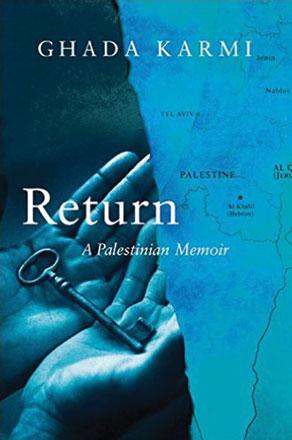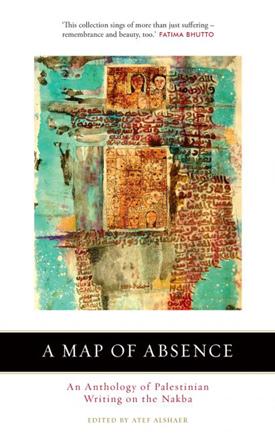You are here
‘The Palestine I found’
By Sally Bland - Oct 11,2015 - Last updated at Oct 11,2015

Return: A Palestinian Memoir
Ghada Karmi
London-New York: Verso, 2015
Pp. 319
For many years, Ghada Karmi, a Palestinian resident in the UK, has campaigned eloquently for the Palestinian right of return. Yet, in her new memoir, return is presented as a conflicted issue.
While its justice is not in doubt, she questions its feasibility for Palestinians like herself who have lived in exile for most of their lives. Her doubt springs from the deep, negative marks left on Palestinian society that she observes on a return visit in 2005. She doesn’t blame the people, however, but faults the cumulative effects of decades of occupation and the Oslo Accords.
Karmi’s prose is searingly honest as she integrates her personal and political experience into a compelling whole. Though she repeatedly queries her own identity and where she belongs, her analytical acumen is not in doubt.
While her earlier memoir, “In Search of Fatima”, focused on her pre-1948 childhood in Qatamoun, and growing up in London after the family had to leave Jerusalem, “Return” covers her adult life, not chronologically, but thematically, in retrospect.
Two events frame the narrative: the illness and death of her father, the widely respected intellectual, Hassan Karmi, and the months she spent in Ramallah as a media consultant for the Palestinian Authority in 2005.
These experiences evoke memories and sometimes re-evaluations of family, particularly her relationship to her father and daughter, her medical and academic career in Britain, her activism, previous return visits to Palestine, the pain of being deprived of your home and homeland, and the evolution of the Palestinian struggle. But, most of all, they evoke conflicted feelings about the idea and reality of return and identity.
For most of her adult life, “being Palestinian was the only thing that felt real” to Karmi. (p. 13)
Until the Palestinian leadership returned to Palestine, she felt that the gravity of the cause lay with those in exile, and that the Nakbeh was the seminal Palestinian event. Yet, after the Oslo Accords, “the rest of us still promoting the cause outside Palestine feel left behind, like people trying to catch a train that has long departed.” (p. 14)
Going to work as a media consultant to the Palestinian Authority was her way to catch up, but she felt she didn’t fit in, and what she had to contribute was not valued. “I looked back on my whole assignment in ‘Palestine’ and realised I had achieved none of my aims because it would never have been possible in the Palestine I found. I had travelled to the land of my birth with a sense of return, but it was a return to the past, to the Palestine of distant memory, not to the place it is now.” (p. 313)
It didn’t help that the ministry to which she was assigned was divided between two chiefs who were at war with one another, and most staff members were content to carry out their routine duties in a lacklustre spirit: “any interest or commitment to the content of their work was secondary to the need to remain in work, no matter what it was.” (p. 29)
Shocked at West Bankers’ seeming indifference to an Israeli attack on Gaza, she later understands that it was not callousness, but “the effect of their closed lives spent inside the parcels of land into which Israel had confined them. Inevitably, they learned to think solely of their own affairs inside their parcel…” (p. 66)
Her incisive descriptions of many big and small happenings reveal what may be the most insidious effect of the Oslo Accords — that it has infiltrated people’s mindset.
Eventually, Karmi learns not to take her work in the ministry so seriously, “because these were pretend places like the rest of the PA’s ‘ministries’, indeed like the ‘Palestinian state’ they were supposed to be a part of. Everyone who worked in them was also pretending, playing a part in a charade created by the international donors who encouraged the Palestinians to believe that they needed to have all the appurtenances of statehood ahead of attaining their state.” (p. 102)
Determined to get something out of her attempted return, Karmi spent much time outside the office, visiting many parts of Palestine and joining in cultural activities and protests, but what she saw was mainly disheartening: villages overwhelmed by settlements and the Apartheid Wall, daunting and tedious checkpoints, the encirclement of Jerusalem, the abysmal situation of Hebron and Gaza, etc. Yet, among ordinary people she did find an amazing resilience that gave cause for guarded optimism.
She also found time to pursue her search for Fatima, the family housekeeper from whom she was separated in 1948. Her poignant descriptions of what she witnessed make the book fascinating (though often sad) reading, even for those who are aware of the facts that she presents. “Return” is a wake-up call addressed to the world and to the Palestinians themselves that pursuing the current course will not lead to a real solution, that there is a need for a radically new approach.
“Return” is available at the University Bookshop and Readers.
Related Articles
AMMAN — On the occasion of the centenary of the Balfour Declaration, marked on November 2, a conference titled “One Hundred Years of the Bal
A Map of Absence: An Anthology of Palestinian Writing on the NakbaEdited by Atef AlShaerLondon: Saqi BooksPp.
A Country of Words: A Palestinian Journey from the Refugee Camp to the Front PageAbdel Bari AtwanLondon: Saqi, 2008Pp.


















